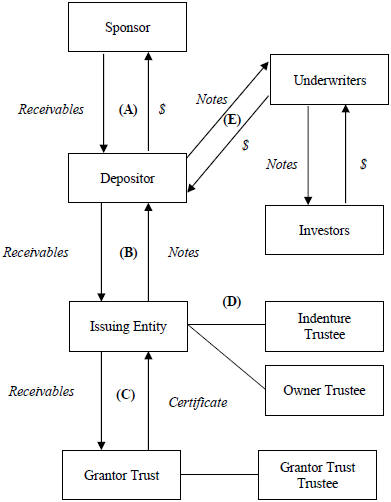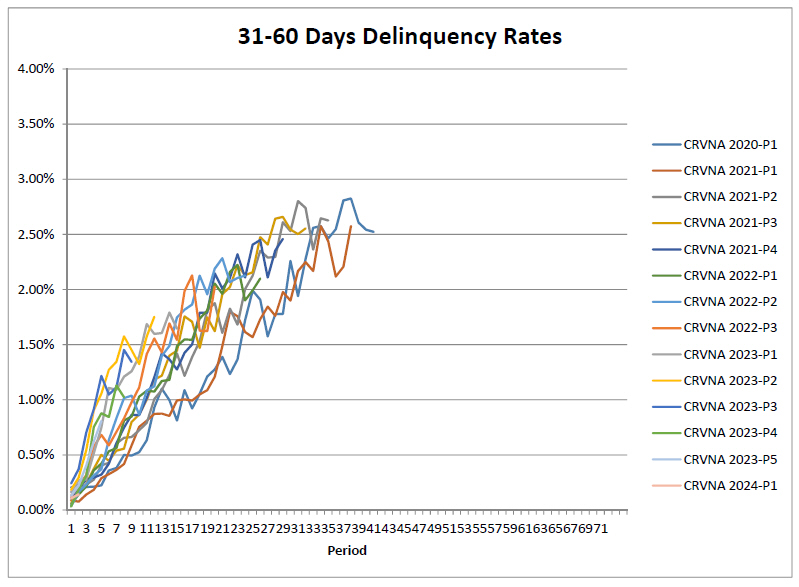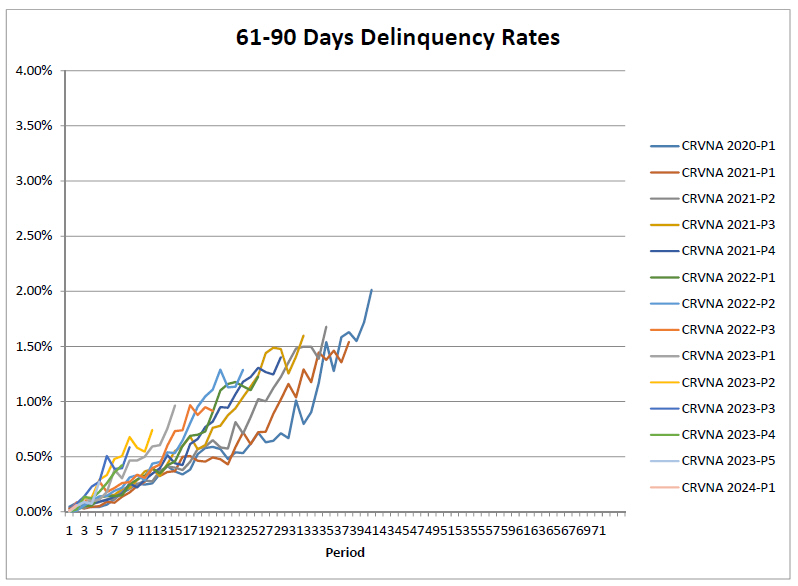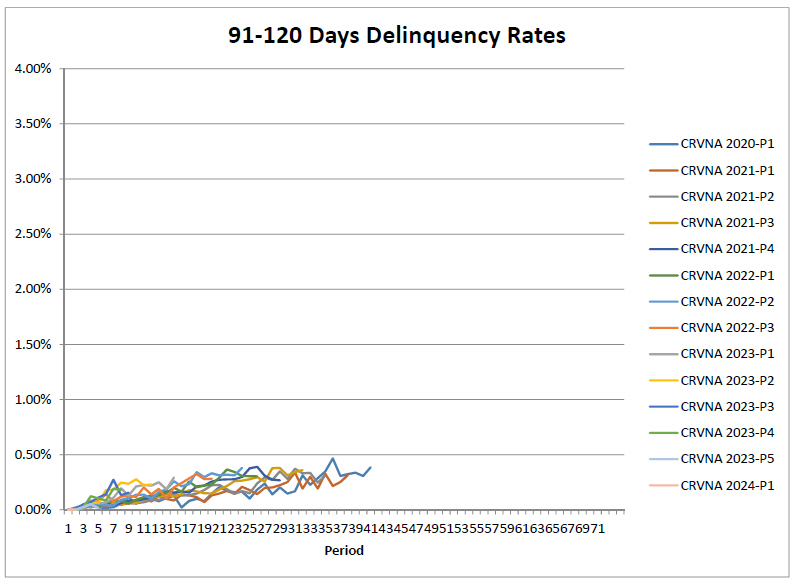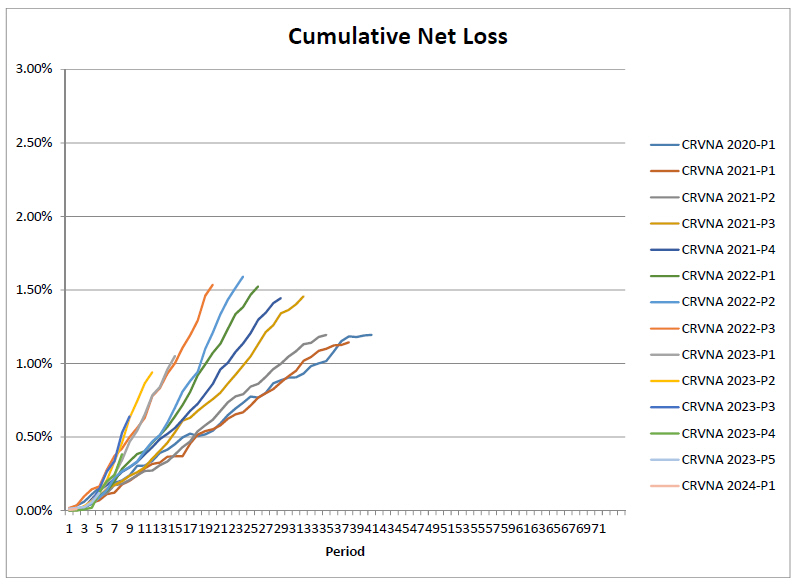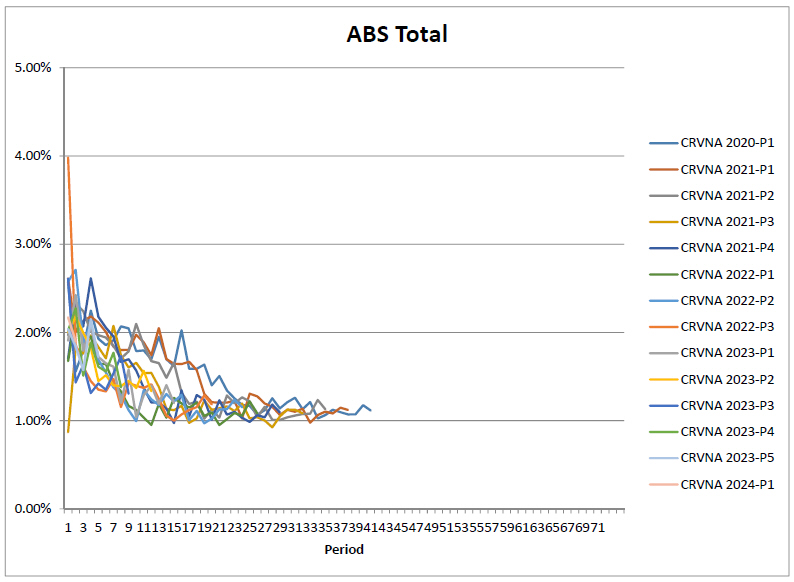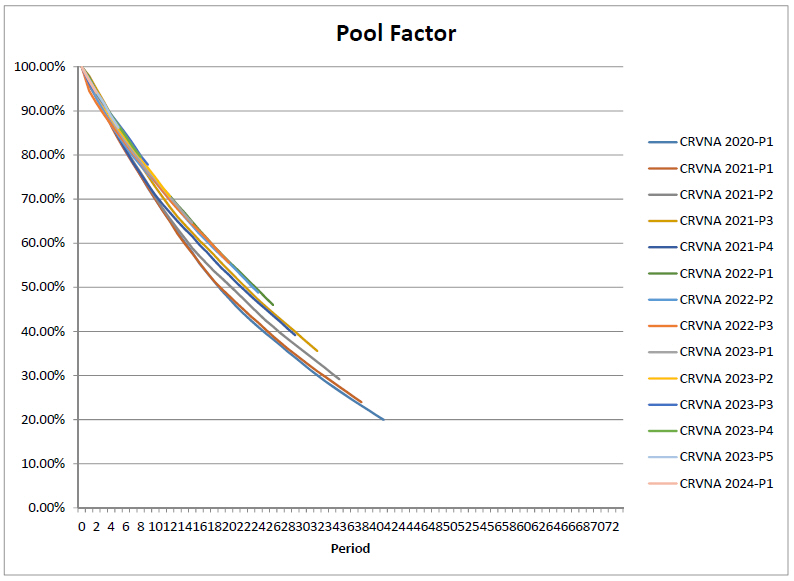basis a material net economic interest in the securitization which, in any event, will not be less than 5%, in accordance with the EU Securitization Rules or the UK Securitization Rules (as applicable to the relevant SR Investor), and discloses that risk retention, and (c) the originator, sponsor or securitization special purpose entity has, where applicable, made available information in accordance with the EU Securitization Rules or the UK Securitization Rules (as applicable).
Failure by any SR Investor to comply with any applicable requirements of the EU Securitization Rules or the UK Securitization Rules with respect to an investment in the Securities may result in the imposition of a penalty regulatory capital charge on that investment or other regulatory sanctions and/or remedial measures being taken or imposed by the competent authority of such SR Investor.
Neither Carvana, the Depositor nor any other person intends, or is required under the Transaction Documents, to retain a material net economic interest in the securitization constituted by the issuance of the Securities, or to take any other action with regard to such securitization, in a manner prescribed or contemplated by the EU Securitization Rules or the UK Securitization Rules. In particular, no such person undertakes to take any action, or refrain from taking any action, for purposes of, or in connection with, compliance by any person with any applicable requirement of the EU Securitization Rules or the UK Securitization Rules.
The arrangements described under “Credit Risk Retention” have not been structured with the objective of ensuring compliance by any person with the requirements of the EU Securitization Rules or the UK Securitization Rules.
Consequently, the Securities may not be a suitable investment for any SR Investor. As a result, the price and liquidity of the Securities in the secondary market may be adversely affected.
Prospective investors are responsible for analyzing their own legal and regulatory position and are advised to consult with their own advisors regarding the suitability of the Securities for investment and, in particular, the scope, applicability and compliance requirements of the EU Securitization Rules and the UK Securitization Rules.
CERTAIN MATERIAL FEDERAL INCOME TAX CONSEQUENCES
Qualifications on Opinion of Tax Counsel
The following summary is based upon current provisions of the Internal Revenue Code of 1986, as amended (the “Code”), United States Department of the Treasury regulations (“Treasury Regulations”) promulgated thereunder and judicial or ruling authority, all of which are subject to change, which change may be retroactive. On the Closing Date, Mayer Brown LLP, as special U.S. tax counsel (“Tax Counsel”), will deliver its opinion, subject to the assumptions and qualifications therein, regarding certain U.S. federal income tax matters discussed below. A legal opinion, however, is not binding on the IRS or the courts. No ruling on any of the issues discussed below will be sought from the Internal Revenue Service (“IRS”). Moreover, there are no cases or IRS rulings on similar transactions involving both debt and equity interests issued by a trust with terms similar to those of the Securities. As a result, the IRS may disagree with all or a part of the discussion below. Furthermore, legislative, judicial or administrative changes may occur, perhaps with retroactive effect, which could affect the accuracy of the statements and conclusions set forth in this Prospectus as well as the tax consequences to Noteholders. Prospective investors should consult their own tax advisors in determining the U.S. federal, state, local, foreign and any other tax consequences to them of the purchase, ownership and disposition of the Offered Notes.
The following discussion does not purport to deal with all aspects of federal income taxation that may be relevant to the Noteholders in light of their personal investment circumstances nor, except for limited discussions of particular topics, to holders subject to special treatment under the federal income tax laws, e.g., financial institutions, broker-dealers, life insurance companies, regulated investment companies, tax-exempt organizations, holders whose functional currency is not the United States dollar, an accrual method taxpayer subject to special tax accounting rules as a result of its use of financial statements, holders that hold the Offered Notes as part of a conversion transaction, hedge or hedging transaction, straddle, synthetic security or other integrated transaction for U.S. federal income tax purposes, corporations subject to the corporate alternative minimum tax on adjusted financial statement income, and
116

